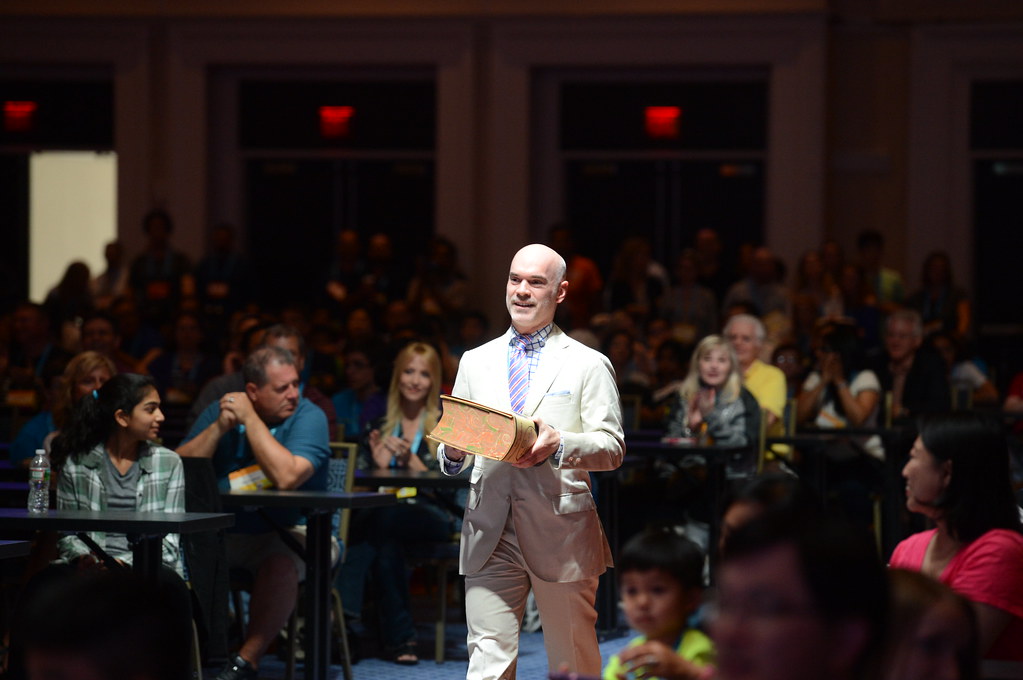After the opening ceremony Monday, spellers heard Merriam-Webster Editor-at-Large Peter Sokolowski talk about the invention of the modern dictionary.
The first English-language dictionary was published in 1604, but it had only the “hard” words, Peter said. The so-called modern dictionary didn’t exist until 1864.
And in between, there were dictionary wars between Noah Webster and Joseph Worcester.
Webster wrote the first American-English dictionary, in 1806, adding words like skunk and chowder that came from Native American languages. He also changed British-English spellings, like humour, to humor.
(Webster wanted to go much further – “ake” for “ache;” “ieland” for “island” – but the changes weren’t used.)
In 1829, Worcester published an abridged version of Webster’s dictionary. In 1830, he published his own. And Webster accused Worcester of plagiarizing his work.
Other arguments occurred over who got credit for work published in England, and the inclusion of engraved pictures in the dictionary.
Then, in the 1864 dictionary, etymologies were updated and definitions were streamlined. That revision was the basis for dictionaries all the way to 1961, Peter said.
“A dictionary is a guide, a road sign, on the highway of language for all of us,” he said.
